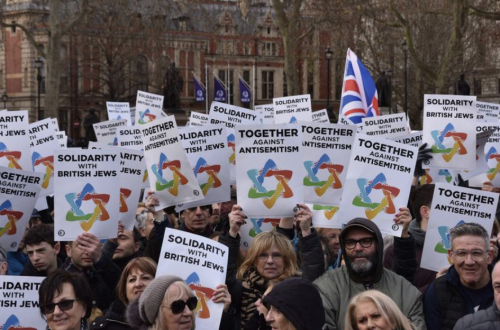At the end of 2017 I looked backwards and forwards in a fortune cookie for 2018 so, twelve months on, where are we?
The most notable thing about 2018 was the lack of a referendum or General Election which must have pleased Brenda from Bristol. The nearest thing was a vote of confidence in May which, although she won, demonstrated that she didn’t command enough support and caused her to indicate that she will pass on the baton before the next election. It’s worth remembering that this doesn’t have to be until June 2022, three and a half years away, although few would bet on that date!
Looking back the most prescient thing I wrote was that in Corbynite Labour it was
“more important to be a ‘comrade’ than a member of the human race”
and that has resonated on innumerable occasions in 2018.
It’s increasingly looking like the party’s over for the kippers as their local government presence appears to be in terminal decline and could be almost extinct by the early 2020s. Where they contest seats, and in many cases they don’t even defend, they invariably lose. Only ten signatures are required to contest a local government election suggesting that their local organisation is disappearing.
Their current Leader, Gerard Batten – and I had to check that in case there’d been another change, recognised that UKIP were a one trick pony and needed to do something to try and stop haemorrhaging votes. This diagnosis is probably correct but becoming an anti Islam/Muslim party moves it away from the mainstream and the exodus of former luminaries is in stark contrast to those (still) in Labour and concerned about its current direction.
The Liberal Democrats aren’t setting the political world on fire but are unspectacularly rebuilding their local government base. They took a beating between 2010 and 2015, in some cases losing what had been very safe seats, sometimes only a small swing is required to regain these. They haven’t attracted much of the anti Brexit vote and it looks like they will need a new direction from Vince Cable’s successor.
It would be difficult to argue that the Conservatives haven’t got problems. Brexit is all consuming and currently uncertain, no one has any idea what’s going to happen and planning for “no deal” is ongoing.
It’s possible that May’s tactics might succeed but there are many unknown unknowns and the situation might well change on a daily or even hourly basis as Brexit approaches. No deal is not in anybody’s interest and history suggests that things might not be resolved until a minute to midnight.
If the Conservatives can navigate Brexit there is, with a new leader, a route to an election victory.
Were the Labour Party at school their end of year report would probably say “Could do better”. They’re not doing badly but there’s almost an unwritten rule that in mid term oppositions should be comfortably ahead; eighteen months after May’s unsuccessful election gamble and with all the trials and tribulations of Brexit the two parties are close in the polls while Corbyn is behind both May and Don’t Know as to who’d make the best Prime Minister.
We’ve now had two Christmases and two failed predictions about Corbyn being in Downing Street.
Labour is actually in as much of a mess on Brexit as the Conservatives. There is a mismatch between the positions of MPs and the way their constituents voted in 2016 and a similar disparity between the leadership and the membership.
Their primary objective is a General Election but they’re not sure how to get one and often look inexperienced and amateurish.
Keir Starmer is, without doubt, an extremely high calibre individual but politically inexperienced. His six tests on Brexit were designed to reject anything the Conservatives might present but would become a millstone as an incoming Labour government would have to deliver on them; neither he nor Team Corbyn spotted that.
Before 2015 Corbyn was an obscure backbencher who’d spent decades in the hard left echo chamber, only talking to fellow travellers, never having to make a decision, which in the real world might be between the lesser of two evils, and rarely subject to scrutiny.
Fundamentally Project Corbyn is a protest movement and it frequently shows, the failure to identify the flaw in the Brexit tests demonstrates the mentality of an opposition not a government.
It’s also clear that they don’t really understand how the media works; governments, which have to deal with “events”, are usually more newsworthy than what an opposition would like to do should it win an election at some undefined time in the future.
When May postponed the vote on her Brexit deal there were a couple of days before PMQs but Corbyn, presumably after discussions, didn’t ask a single question on it. The BBC used the exchange between May and the SNP’s Blackford with a separately filmed comment from Starmer.
Then there was the “stupid woman” incident. Most of us will have occasionally muttered something derogatory under our breath but Corbyn, again presumably after discussions, denied it and became the story. A very simple apology would have ended the matter; this is an excellent example of fighting the wrong battle and can be added to the Salisbury nerve agent attack, the Syrian use of chemical weapons and the IHRA definition of antisemitism.
Corbyn’s ratings have dropped and his media appearances seem to have (deliberately?) reduced, he “missed” the traditional Radio 4 interview on the morning of his conference speech. Considering that Marr’s first question at that time was to ask him if he was antisemitic and he is often tetchy and irritated this hardly seems surprising.
Finishing the year fourth on an antisemitic top ten shows just how far he’s fallen since the heights of 2017 and Glastonbury.
The opinion polls go up and down and sometimes one side will get a lead, usually temporary, greater than the +/-3% margin of error but Labour’s policies still seem about as popular as they were in 2017.
British politics has become more presidential and it’s uncertain how a party with an under performing leader will do in a general election. It’s difficult to see how Corbyn could be easily replaced as there are probably enough members who crawled out of the same hole and share his worldview to keep him there.
A complete collapse of the Conservatives and an election without time to replace May would appear to be Labour’s best chance of forming the next government.
The only certainty about 2019 is that the clock is ticking down to Brexit but, apart from that, we’re still living in interesting times.
This is a guest post by John Wall





